

April 18 – 24: “How do you avoid writer’s block?”
 This week we discuss what’s on every writer’s mind, at least from time-to-time: writer’s block. Join ITW Members E. M. Powell, Allison Brennan, Duffy Brown, Thomas Kirkwood, Janelle Samara, Alex Segura, Ryan Quinn, Elena Harwell, Lisa Preston, Robin Yocum, J. D. Horn, Arthur Kerns and Susan Mangiero as they answer the question: How do you avoid writer’s block?
This week we discuss what’s on every writer’s mind, at least from time-to-time: writer’s block. Join ITW Members E. M. Powell, Allison Brennan, Duffy Brown, Thomas Kirkwood, Janelle Samara, Alex Segura, Ryan Quinn, Elena Harwell, Lisa Preston, Robin Yocum, J. D. Horn, Arthur Kerns and Susan Mangiero as they answer the question: How do you avoid writer’s block?
~~~~~
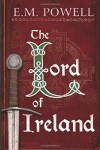 E.M. Powell’s medieval thriller Fifth Knight series have been #1 Amazon and Bild bestsellers. Book #3, THE LORD OF IRELAND, is out April 2016. Born and raised in the Republic of Ireland into the family of Michael Collins (the legendary revolutionary and founder of the Irish Free State), she lives in northwest England with her husband, daughter and a Facebook-friendly dog. As well as contributing to The Big Thrill, she blogs for English Historical Fiction Authors and reviews for the Historical Novel Society.
E.M. Powell’s medieval thriller Fifth Knight series have been #1 Amazon and Bild bestsellers. Book #3, THE LORD OF IRELAND, is out April 2016. Born and raised in the Republic of Ireland into the family of Michael Collins (the legendary revolutionary and founder of the Irish Free State), she lives in northwest England with her husband, daughter and a Facebook-friendly dog. As well as contributing to The Big Thrill, she blogs for English Historical Fiction Authors and reviews for the Historical Novel Society.
 Allison Brennan is the New York Times and USA Today bestselling author of 27 thrillers and numerous short stories. She currently writes two series, the Maxine Revere cold case mysteries and the Lucy Kincaid/Sean Rogan romantic thrillers. Allison lives in Northern California with her husband, five kids, and assorted pets.
Allison Brennan is the New York Times and USA Today bestselling author of 27 thrillers and numerous short stories. She currently writes two series, the Maxine Revere cold case mysteries and the Lucy Kincaid/Sean Rogan romantic thrillers. Allison lives in Northern California with her husband, five kids, and assorted pets.
 Ryan Quinn is the best-selling author of The Good Traitor, End of Secrets, and The Fall. A native of Alaska, Quinn was an NCAA DI Champion while on the University of Utah Ski team. He worked in book publishing for five years in New York City and now lives in Los Angeles where he writes and trains for marathons.
Ryan Quinn is the best-selling author of The Good Traitor, End of Secrets, and The Fall. A native of Alaska, Quinn was an NCAA DI Champion while on the University of Utah Ski team. He worked in book publishing for five years in New York City and now lives in Los Angeles where he writes and trains for marathons.
 Thomas Kirkwood is an international author best known for his Cold War thrillers. His novels have been published by Macmillan, Collier Macmillan (Europe), Penguin (Donald I. Fine), Signet, Amazon, Brilliance (audio), ACX (audio) and Stjerne-Spenning (Europe). After years in the EU, he now makes his home in Salida, Colorado. His new release, THE THIRTEENTH DISCIPLE: A REQUIEM FOR AMERICA, describes how the world’s oldest democracy set itself up to become the world’s newest dictatorship.
Thomas Kirkwood is an international author best known for his Cold War thrillers. His novels have been published by Macmillan, Collier Macmillan (Europe), Penguin (Donald I. Fine), Signet, Amazon, Brilliance (audio), ACX (audio) and Stjerne-Spenning (Europe). After years in the EU, he now makes his home in Salida, Colorado. His new release, THE THIRTEENTH DISCIPLE: A REQUIEM FOR AMERICA, describes how the world’s oldest democracy set itself up to become the world’s newest dictatorship.
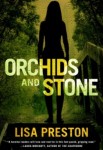 Lisa Preston turned to writing after careers as a fire department paramedic and a city police officer. Experience in her earlier professions enhance the medical and legal passages of her fiction and non-fiction. Her debut novel, Orchids and Stone, was released by Thomas & Mercer in April 2016, and has been described both as a thriller and as domestic noir. Her published work includes non-fiction books and articles on animals, particularly the care and training of dogs and horses. Away from her desk, she spends hours on backcountry trails as a runner and rider, sometimes combining her two outdoor pursuits via the obscure sport of Ride and Tie.
Lisa Preston turned to writing after careers as a fire department paramedic and a city police officer. Experience in her earlier professions enhance the medical and legal passages of her fiction and non-fiction. Her debut novel, Orchids and Stone, was released by Thomas & Mercer in April 2016, and has been described both as a thriller and as domestic noir. Her published work includes non-fiction books and articles on animals, particularly the care and training of dogs and horses. Away from her desk, she spends hours on backcountry trails as a runner and rider, sometimes combining her two outdoor pursuits via the obscure sport of Ride and Tie.
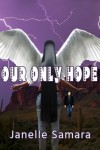 Janelle Samara lives in Kansas City, Missouri, with her husband and cat. When she’s not busy writing, her favorite pastimes include devouring classic books on her tablet, growing organic vegetables, and creating new recipes for her large extended family. When she needs to get out of the house, she has many interests, ranging from watching ballet to fishing with her brothers. She also loves to continue learning and frequently listens to many educational podcasts.
Janelle Samara lives in Kansas City, Missouri, with her husband and cat. When she’s not busy writing, her favorite pastimes include devouring classic books on her tablet, growing organic vegetables, and creating new recipes for her large extended family. When she needs to get out of the house, she has many interests, ranging from watching ballet to fishing with her brothers. She also loves to continue learning and frequently listens to many educational podcasts.
 Elena Hartwell was born in Bogota, Colombia, while her parents were in the Peace Corps. Her first word was “cuidado.” At the age of nine months, she told two men carrying a heavy table to be careful in their native tongue. She’s been telling people what to do ever since. After almost twenty years in the theater, Elena turned her playwriting skills to fiction. “One Dead, Two to Go” is her first novel.
Elena Hartwell was born in Bogota, Colombia, while her parents were in the Peace Corps. Her first word was “cuidado.” At the age of nine months, she told two men carrying a heavy table to be careful in their native tongue. She’s been telling people what to do ever since. After almost twenty years in the theater, Elena turned her playwriting skills to fiction. “One Dead, Two to Go” is her first novel.
 Duffy Brown loves anything with a mystery. While others girls dreamed of dating Brad Pitt, Duffy longed to take Sherlock Holmes to the prom. She is a National Bestselling author and conjures up who-done-it stories of her very own for Berkley Prime Crime. She has two series the Consignment Shop Mysteries set in Savannah and the Cycle Path Mysteries set on Mackinac Island.
Duffy Brown loves anything with a mystery. While others girls dreamed of dating Brad Pitt, Duffy longed to take Sherlock Holmes to the prom. She is a National Bestselling author and conjures up who-done-it stories of her very own for Berkley Prime Crime. She has two series the Consignment Shop Mysteries set in Savannah and the Cycle Path Mysteries set on Mackinac Island.
 Alex Segura is a novelist and comic book writer. He is the author of the Miami crime novel SILENT CITY, the first in a series featuring Pete Fernandez. SILENT CITY and its sequel, DOWN THE DARKEST STREET, out this year via Polis Books. He has also written a number of comic books, including the best-selling and critically acclaimed ARCHIE MEETS KISS storyline, the “Occupy Riverdale” story and the upcoming ARCHIE MEETS RAMONES. He lives in New York with his wife. He is a Miami native.
Alex Segura is a novelist and comic book writer. He is the author of the Miami crime novel SILENT CITY, the first in a series featuring Pete Fernandez. SILENT CITY and its sequel, DOWN THE DARKEST STREET, out this year via Polis Books. He has also written a number of comic books, including the best-selling and critically acclaimed ARCHIE MEETS KISS storyline, the “Occupy Riverdale” story and the upcoming ARCHIE MEETS RAMONES. He lives in New York with his wife. He is a Miami native.
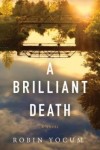 Robin Yocum is the author of the critically acclaimed novels FAVORITE SONS and THE ESSAY. FAVORITE SONS was named the 2011 USA Book News’ Book of the Year for Mystery/Suspense. It was selected for the Choose to Read Ohio program for 2013-14 and was a featured book of the 2012 Ohioana Book Festival. Yocum is also the author of DEAD BEFORE DEADLINE . . . AND OTHER TALES FROM THE POLICE BEAT and INSURED FOR MURDER (with Catherine Candisky). He is well known for his work as a crime and investigative reporter with the Columbus Dispatch from 1980-1991. He was the recipient of more than thirty local, state, and national journalism awards in categories ranging from investigative reporting to feature writing.
Robin Yocum is the author of the critically acclaimed novels FAVORITE SONS and THE ESSAY. FAVORITE SONS was named the 2011 USA Book News’ Book of the Year for Mystery/Suspense. It was selected for the Choose to Read Ohio program for 2013-14 and was a featured book of the 2012 Ohioana Book Festival. Yocum is also the author of DEAD BEFORE DEADLINE . . . AND OTHER TALES FROM THE POLICE BEAT and INSURED FOR MURDER (with Catherine Candisky). He is well known for his work as a crime and investigative reporter with the Columbus Dispatch from 1980-1991. He was the recipient of more than thirty local, state, and national journalism awards in categories ranging from investigative reporting to feature writing.
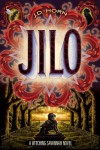 J.D. Horn was raised in rural Tennessee, and has since carried a bit of its red clay in him while travelling the world, from Hollywood, to Paris, to Tokyo. He studied comparative literature as an undergrad, focusing on French and Russian in particular. He also holds an MBA in international business and worked as a financial analyst before becoming a novelist. He and his spouse, Rich, and their pets have settled, at least temporarily, just outside Sisters, Oregon.
J.D. Horn was raised in rural Tennessee, and has since carried a bit of its red clay in him while travelling the world, from Hollywood, to Paris, to Tokyo. He studied comparative literature as an undergrad, focusing on French and Russian in particular. He also holds an MBA in international business and worked as a financial analyst before becoming a novelist. He and his spouse, Rich, and their pets have settled, at least temporarily, just outside Sisters, Oregon.
 Arthur Kerns is a retired FBI supervisory special agent and past president of the Arizona chapter of the Association of Former Intelligence Officers (AFIO). His award-winning short fiction has appeared in numerous anthologies. He is a book reviewer for the Washington Independent Review of Books. Diversion Books, Inc. NY, NY published his espionage thriller, The Riviera Contract, and the sequel, The African Contract. The third in the series, The Yemen Contract, is set for release in June 2016.
Arthur Kerns is a retired FBI supervisory special agent and past president of the Arizona chapter of the Association of Former Intelligence Officers (AFIO). His award-winning short fiction has appeared in numerous anthologies. He is a book reviewer for the Washington Independent Review of Books. Diversion Books, Inc. NY, NY published his espionage thriller, The Riviera Contract, and the sequel, The African Contract. The third in the series, The Yemen Contract, is set for release in June 2016.
Dr. Susan Mangiero is the author of Risk Management for Pensions, Endowments and Foundations and over thirty-five articles and chapters that have been published in prominent investment industry journals, magazines and books. As lead contributor to www.pensionriskmatters.com and www.goodriskgovernancepays.com, she has penned over 1,000 economic commentaries. In 2008, Pensions & Investments recognized Pension Risk Matters as a “best blog.” A lifelong reader and lover of words, Susan won several awards for writing early on and continues to receive praise for her ability to explain complex terms in a straightforward manner. She is currently working on her first fiction book about the world of money.
- LAST GIRL MISSING with K.L. Murphy - July 25, 2024
- CHILD OF DUST with Yigal Zur - July 25, 2024
- THE RAVENWOOD CONSPIRACY with Michael Siverling - July 19, 2024
